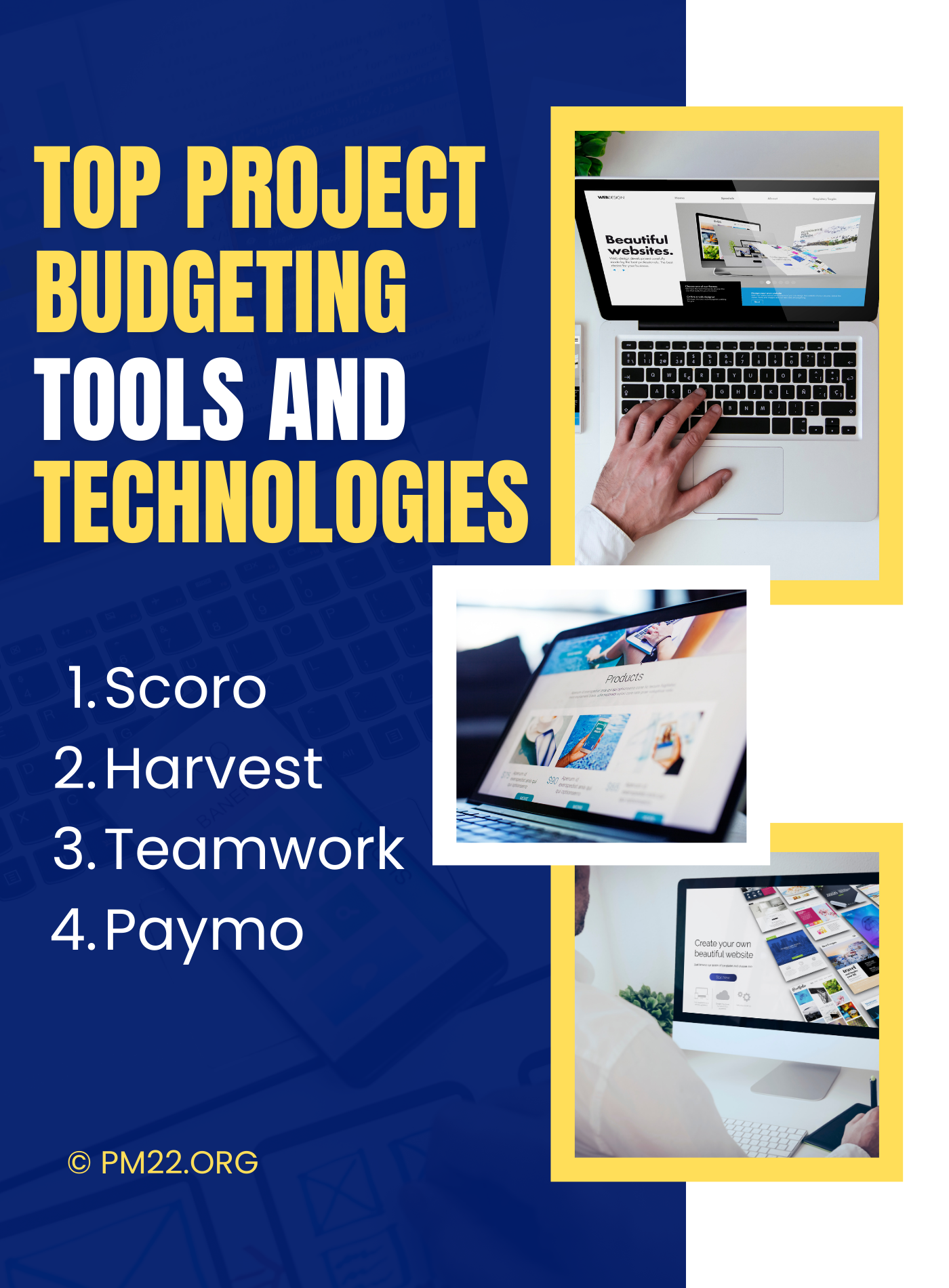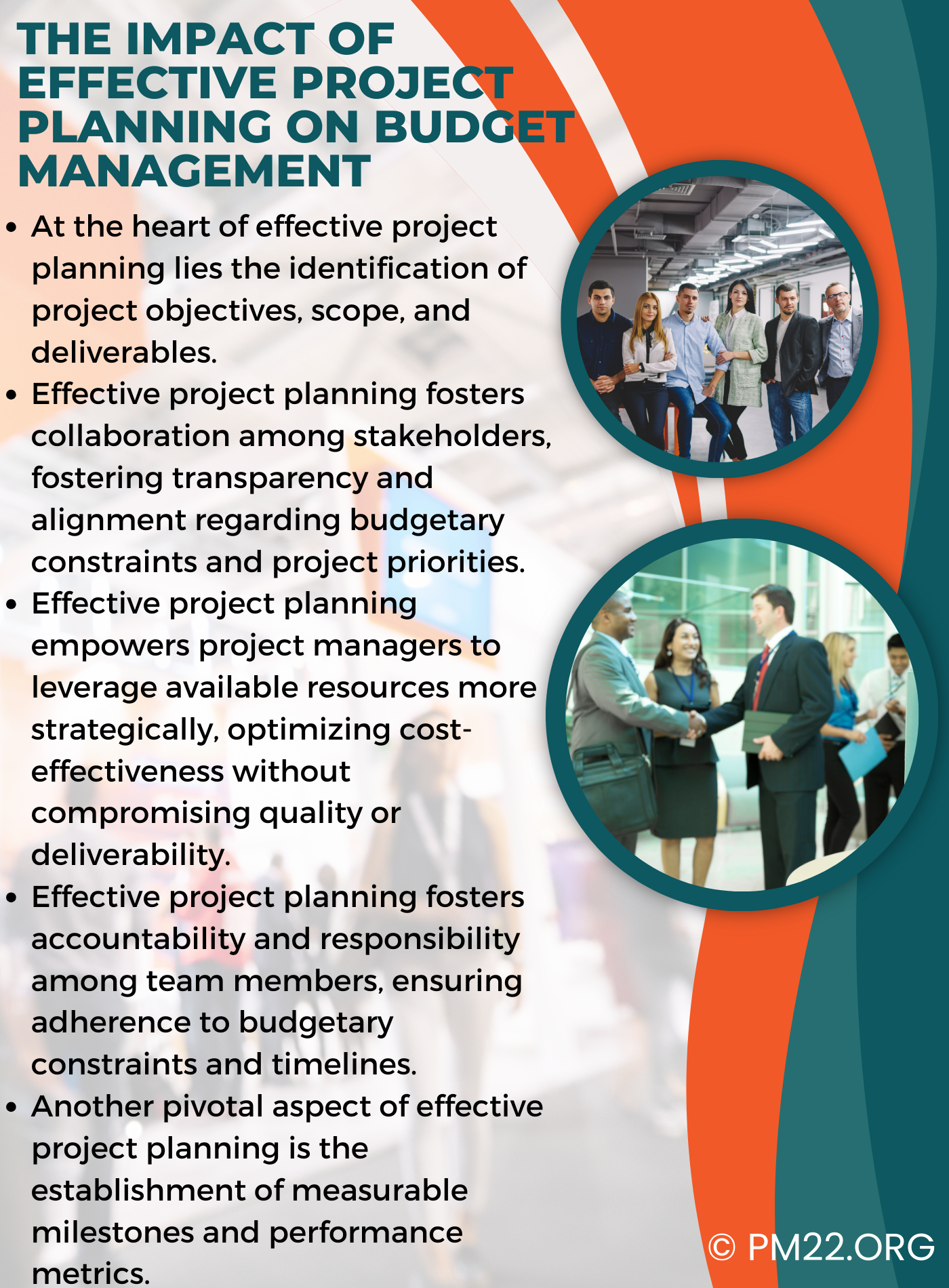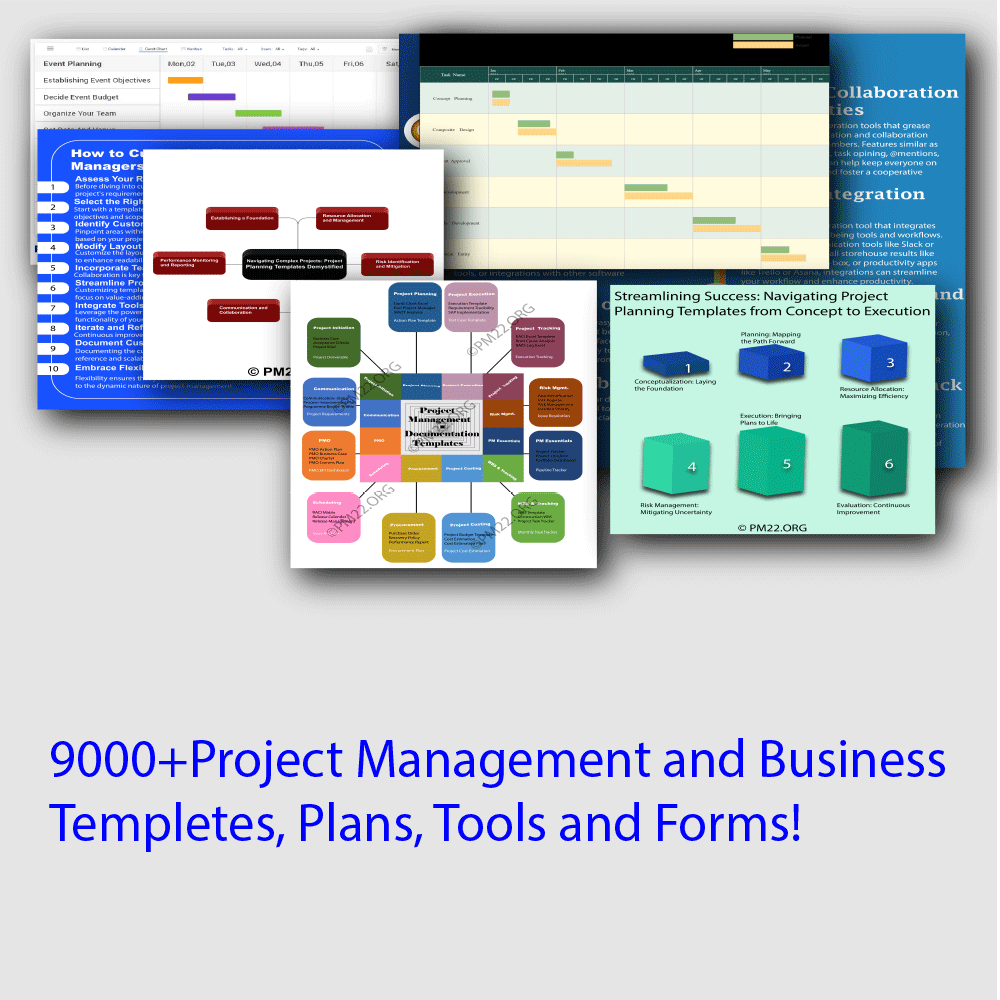 In the realm of project management, successful execution hinges upon meticulous planning and strategic allocation of resources. Among the most critical aspects of this process is budget management. A well-devised project plan not only outlines tasks and timelines but also serves as a blueprint for financial stewardship. In this article, we delve into the profound impact of effective project planning on budget management and explore how meticulous foresight can lead to optimal resource utilization and project success.
In the realm of project management, successful execution hinges upon meticulous planning and strategic allocation of resources. Among the most critical aspects of this process is budget management. A well-devised project plan not only outlines tasks and timelines but also serves as a blueprint for financial stewardship. In this article, we delve into the profound impact of effective project planning on budget management and explore how meticulous foresight can lead to optimal resource utilization and project success.
At the heart of effective project planning lies the identification of project objectives, scope, and deliverables. By clearly defining these parameters at the outset, project managers can accurately estimate the resources required for each stage of the project lifecycle. This foresight enables them to develop comprehensive budgetary allocations that align with the project’s strategic goals. Moreover, by anticipating potential risks and contingencies during the planning phase, project managers can incorporate buffers into the budget to mitigate unforeseen expenses, thus safeguarding against budget overruns.
CLICK HERE TO DOWNLOAD 300+ PROJECT MANAGEMENT TEMPLATES & DOCUMENTS IN EXCEL
Furthermore, effective project planning fosters collaboration among stakeholders, fostering transparency and alignment regarding budgetary constraints and project priorities. By engaging key stakeholders early in the planning process, project managers can solicit valuable input and insights, ensuring that budget allocations reflect the collective vision and objectives of the project team. This collaborative approach not only enhances buy-in and commitment but also facilitates informed decision-making throughout the project lifecycle, thereby optimizing resource utilization and minimizing budgetary discrepancies.
Another pivotal aspect of effective project planning is the establishment of measurable milestones and performance metrics. By breaking down the project into manageable phases and setting clear performance benchmarks, project managers can monitor progress against predefined targets and adjust resource allocations accordingly. This iterative approach to budget management allows for timely course corrections and reallocation of resources to areas of greater need, thereby maximizing efficiency and minimizing waste.
Moreover, effective project planning empowers project managers to leverage available resources more strategically, optimizing cost-effectiveness without compromising quality or deliverability. By conducting thorough cost-benefit analyses and exploring alternative approaches, project managers can identify opportunities for cost savings and resource optimization, thereby stretching the budget to its fullest potential. Whether through streamlining processes, negotiating favorable vendor contracts, or leveraging economies of scale, proactive planning enables project managers to achieve more with less, thereby enhancing overall project profitability and return on investment.
CLICK HERE TO DOWNLOAD 300+ PROJECT MANAGEMENT TEMPLATES & DOCUMENTS IN EXCEL
Additionally, effective project planning fosters accountability and responsibility among team members, ensuring adherence to budgetary constraints and timelines. By clearly defining roles and responsibilities within the project team and establishing mechanisms for tracking and reporting progress, project managers can foster a culture of accountability and ownership, wherein each team member is committed to optimizing resource utilization and minimizing waste. This shared commitment to budget management not only enhances team cohesion and morale but also cultivates a sense of stewardship and pride in project outcomes.
In conclusion, the impact of effective project planning on budget management cannot be overstated. By laying a solid foundation of foresight, collaboration, and accountability, project managers can optimize resource utilization, mitigate risks, and maximize project success. Through meticulous planning and strategic allocation of resources, project managers can navigate the complexities of budget management with confidence, delivering value to stakeholders and achieving organizational objectives. As such, effective project planning emerges as a cornerstone of successful project execution, driving efficiency, innovation, and sustainable growth.
